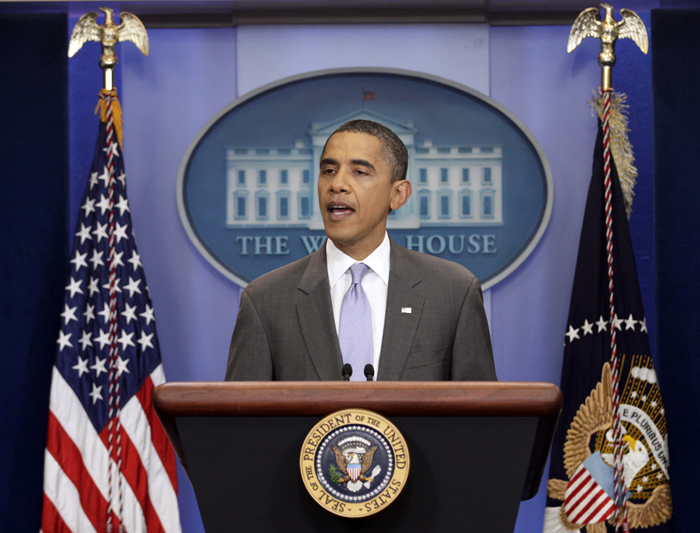Debt crisis put off, not solved
Friday, January 1, 1904
A majority of the members of Congress and President Barack Obama have demonstrated a failure to provide responsible financial leadership for our country, and we're afraid the latest deal to raise the so-called "debt limit" won't really change that.
With the national debt expected to hit the legislated "limit" of $14.3 trillion today, Obama and Congress apparently reached a last-minute deal to raise the obviously ineffective limit in two stages -- by up to $2.4 trillion -- with the hope that would put off yet another debt limit increase until after the 2012 elections. But should this debate really be about political careers or about bringing down our crippling debt?
As for the initial $917 billion worth of cuts promised in the deal, spending would be cut by only $21 billion next year and $42 billion in 2013, according to the Congressional Budget Office. That's nothing in the face of a debt that is $14.3 trillion and growing. Most of the cuts would take place over the next decade -- supposedly -- but the added borrowing would occur much sooner.
And an additional $1.5 trillion in cuts would have to be decided on by a special congressional committee. If that panel doesn't agree on those cuts, then cuts would be triggered across the federal government. But Congress has found a way to get around previous so-called "triggers." It may do so again. At any rate, cuts that the current Congress promises to make someday do not require a future Congress to go along.
Also of concern is the fact that the congressional committee could still impose destructive tax increases.
So we have the certainty of more borrowing in the near future but only the possibility of significant spending cuts down the road.
As U.S. Sen. Lindsey Graham, R-S.C., noted, the deal may have slightly slowed our nation's rush toward disaster, but it hasn't halted it.
"We're no longer running toward oblivion, we're walking toward it," he said.

